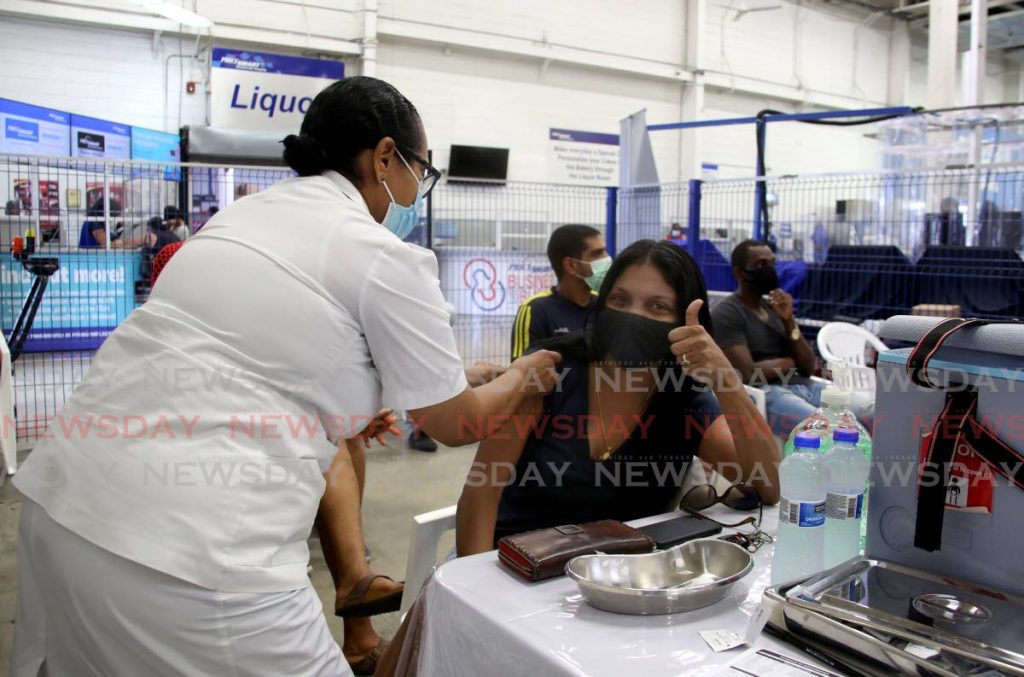Hindu perspective on vaccination

THE EDITOR: Almost two years into the covid19 pandemic, at least one in every 28 people in TT have tested positive for covid19, and at least one in every 950 people have died from this disease. Countless more lost livelihoods because of the temperamental state of lockdowns, and our children's education has suffered.
Vaccinations provide an opportunity to reduce death and severe disease and allow us the stability to return to some degree of pre-pandemic normalcy. However, vaccine hesitancy continues to be high, with many people citing religion as a reason not to get vaccinated. As a Hindu and a medical professional, I will discuss why it is our dharma (duty) to consider vaccination and assist others in taking the vaccine.
Santana Dharma has always embraced knowledge and science in our health. Every day we seek knowledge as our highest goal as we invoke God as Lord Ganapati and Goddess Saraswati, the embodiments of knowledge and wisdom. This knowledge is not only spiritual but secular as well, including sciences.
Health is also our priority, as we invoke Lord Dhanavantri (the presiding deity of medicine), the Ashvini Kumaras (celestial physicians), and Mother Durga or Mother Kali, though incarnations such as Devi Shitala (the mother who protects us from infectious diseases). Yoga, Ayurveda and dietary control are spiritual practices and geared at promoting health and well-being. It is, therefore, dharmic to keep updated on health issues and make informed, logical choices to promote health and well-being.
Vaccination is not new to Hinduism as it is not novel to many ancient civilisations, including the Persian and Chinese. On October 23, 1869, the reputable medical journal The Lancet reported on the work of the Asiatic Society, set up by the British to understand the cultures of colonised lands.
It noted that in Vaidya Shatras (texts of the physicians), there was a text known as the Sakteya Grantham, a description of the smallpox vaccine, administered almost identically to the methods used in later years by Edward Jenner in 1796. The rediscoveries of that time led to the first successful global eradication of smallpox in 1978.
Other texts described precise rules of vaccination. Thus, the continued inquiry into vaccinations and medical advances that allow us to vaccinate against covid19 is not new to Hindu tradition.
The decision of vaccination is not only about protecting oneself but also about the welfare of others. The Srimad Bhagavad Gita indicates that wise and holy people act with the world's welfare at heart. Sufficient scientific evidence, after the administration of over three billion vaccines globally, suggests that by getting vaccinated a person reduces his chances of hospitalisation and death and reduces the ability to transmit covid19 to others if caught. Thus the vaccination decision is not merely a personal one but also a social and civic responsibility.
Vaccination against covid19 does not violate any of the Yamas and Niyamas (social and personal ethical injunctions) in our scriptures. None of the vaccines contain beef or any product considered impure. Sanatana Dharma does not justify vaccine hesitancy but instead makes it our responsibility to vaccinate ourselves proactively and encourage others to do the same.
As the Srimad Bhagwatam explains, "as long as he has intelligence and bodily strength, an intelligent person should try to avoid death. It is the duty of every embodied person."
DR VEDAVID MANICK
via e-mail


Comments
"Hindu perspective on vaccination"